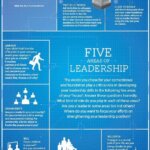Jan Wong, 26 is an online strategist, youth advocate and an entrepreneur. Starting at the age of 18, he has founded four businesses, a consultant in a local branding firm, a part time lecturer at the Asia Pacific University (APIIT / APU), a certified e-commerce consultant, a Masters degree holder in Technology Management and has published an academic article at the Global Communications Conference. Jan is passionate with integrating technology in businesses and youth entrepreneurship.
Through his passion, Jan has worked with notable brands in the industry including Berjaya Corporation, Snowflake, MICPA, KL SOGO and FIMM, just to name a few, in assisting them to acquire a stronger foothold on today’s digital space with an integrated and tactical approach.
His involvement within the entrepreneurship movement in Malaysia also enabled him to be a part of the Academic Advisory Board of KDU University College, and the opportunity to speak at various entrepreneurship and social media events in universities, workshops and conferences. Jan is also the project director of the Malaysia’s Online Fashion Entrepreneur Weekend (MOFEW) in 2010 and 2011 to inspire new online fashion entrepreneurs within Malaysia and to encourage support from the corporate sector towards the unsung entrepreneurs. Through MOFEW, Jan became involved as a catalyst partner with Global Entrepreneurship Week (GEW) to inspire entrepreneurs nationwide.
Jan speaks to the Asian Entrepreneur today about OpenMinds, a company he had founded, assisting corporates on social media marketing.

We understand you are a youth advocate, how exactly did you get into that?
There isn’t exactly a point of time where I made a conscious effort to “get into this line” as it has always been a close part of me. It may have been my active involvement with the youth ministry of my church at a young age that caused me to have this connection towards the youth and to continuously look out for them. This caused me to realize that there are many youths out there that are passionate in business or something but do not have the means or resources to do so – I simply want to change that around for them within my means.
Why did you decide to start OpenMinds?
OpenMinds started back in late 2009 with a single product in mind. As with every tech start-up, OpenMinds went through the same painful process of pitching for grants, investors, sponsors, and we got none. What we only had were brands that were interested but would only consider sponsoring when the product has received sufficient traction. It was tough as we needed the money to grow in the first place and this went on for about a year or so. However through the process, we found that the people we spoke too were very much more interested with our marketing strategy and how we were able to integrate technology into it. The very same thing kept happening and with much deliberation, this caused OpenMinds to pivot and never looked back since.
Some where late 2011, we decided that if nobody is going to give us the money we need, we’ll just make the money ourselves by forming a self-sustaining entity that provides professional services on the outside to support our idea and tech development on the inside – which is now the core value of OpenMinds today. Since then, OpenMinds have been setting aside funds from our profits not only to fund internal ideas, but also in hopes to fund entrepreneurs that are in the same predicament as us back then when we first started.
What are yourthoughts on the youth of Malaysia?
The youths of Malaysia today are digitally inclined and resourceful. This has opened a world of possibilities for them to explore, potentially causing them to be more knowledgeable and creative from the generations before. However, today’s youths are also the ones suffering from the lack of genuine resources for them to put their knowledge and creativity to use, to be refined and to be commercialized. They are generally tucked behind office desks for the sake of a “better” future.
So you founded OpenMinds, what exactly do you guys do?
OpenMinds Resources is a company that does online positioning, social media marketing and analytics on the outside, and a full-fledged start-up company on the inside. What this means is that in the midst of all the digital media strategizing, consultancy and analysis work, OpenMinds is constantly testing new ideas and features to be rolled out as products for our clients; and for all who are interested (happening soon!), just like how a tech start-up is.
What kind of challenges did you face starting OpenMinds?
There were definitely many challenges throughout the process even in the early days. OpenMinds started with zero capital. Zilch. It was pure passion and commitment when the founding team first came together to work on our very first product. That alone, was a challenge in itself. We relied entirely on our own savings to get by and were quickly running out of options as the rejections from grants, investors and sponsors came in. The pressure applied from our respective families were great too. By then we could have very well caved in, part ways, and work on our personal plans but we didn’t. We believed in what we had to offer and made the pivot in time for the ‘big change’ in Malaysia’s digital climate. The key to our survival was essentially pure passion, determination, sacrifice and focus, no fancy strategy or a sudden financial breakthrough.
How is this industry like in Malaysia at the moment?
Not only we are up against multi-national PR and media agencies, but also digital media firms that are sprouting all over Malaysia today. But then again, that’s just the front and we are all good with it. The team at OpenMinds have been dedicated to the values set out from day 1 and interestingly, through OpenMinds’ focus on idea and tech development, we have worked with many of these PR and media giants on various projects as we have a niche that other firms may not be able to provide.
How have you managed to stay relevant?
Relevancy is key in OpenMinds and is something that is strongly advocated amongst the team and has become part of the OpenMinds culture. The working environment of OpenMinds is such that individuals do not have a permanent spot (unless they make their mark) as the seating arrangement is designed to be fluid for small group discussions and work. Having that said, team members are also only required to check-in three days a week into the office, spending the remaining two days away, free to seek inspiration, explore ideas and self experiments.
Everyone then meets back on Fridays regularly for an open table session in which team members are required to share their knowledge and experience on discussion topics set out by the week’s facilitator. OpenMinds also believes in blue sky sessions that the team gathers just to explore ideas that can be implemented within a set duration.
How do you plan to develop OpenMinds in the long term?
I look forward to the day that OpenMinds will be able to continuously roll out self-sustainable digital products that will in turn boost our capacity in supporting up and coming entrepreneurs. Everyday we are moving one step closer into making this into a reality and we also would really want to do what we can to inspire entrepreneurship through the curriculum of today’s tertiary-level students in particular. It is also part of our plan to have an even more dynamic working environment that can take what we are doing a step further so that we are better equipped to take on bigger ideas and to share our resources, from opening our Friday sessions to the public, creating incubators for tech entrepreneurs and more.


Share with us some interesting experiences you’ve had as a youth advocate.
This may sound cliche but every bit of it is interesting. The only reason I say that is because every time I’m given an opportunity to share or to work with the youth I am constantly inspired by them. The energy, the creativity, the eagerness to learn and the drive to make things happen in them never fail to drive me forward – which is one of the main reasons why I took up lecturing part time. One of the most often questions I get from students, fellow lecturers and friends alike is “Why are you here when you already have businesses to run?”. The answer is simple, I just can’t get enough. I believe that puts me in a situation that I can constantly work with different groups of young people to share with them every bit of my experiences and what I know to prepare them for whats next to come.
One of the highlights for me though, was definitely through the launch of the Malaysia’s Online Fashion Entrepreneurs’ Weekend (MOFEW) in 2010 and 2011 which allowed me to work closely with hundreds of online fashion entrepreneurs throughout Malaysia and subsequently through various activities with Global Entrepreneurship Week (GEW). Through the process I had to constantly defend the feasibility and reputation of these entrepreneurs to corporate brands for their support as online fashion entrepreneurs are typically seen as the minority back then in Malaysia. To cut the long story short (MOFEW is a long story by itself), MOFEW managed to attract a cumulative number of 80,000 visitors from all around ASEAN in the span of just two 3-day events with the support of over 100 corporate brands in Malaysia, supporting close to 200 online fashion entrepreneurs in the process.

What do you think about startups in Asia?
Asia is a force to be reckoned with. The same goes for the startups. Sure, we may not be a dominating force like the Silicon Valley but the sheer amount of startups throughout Asia is simply amazing. I believe that we have the talents and opportunities for startups to continuously grow but one problem remains – the startup ecosystem still has ways to go. Until unless there is a consistent and genuine ecosystem that appreciate, support and fund startups, it is tough for Asian based startups to not only grow, but to even set out to turn their ideas into a reality.
What do you think about startups in Asia?
Entrepreneurs are the closest beings to super heroes. No, I kid. But really, entrepreneurs tend to go the extra mile. They sacrifice their well beings to ensure their idea is sustainable and they put up with the most ridiculous things just to see their idea become a reality. And in most situations, these things really doesn’t make sense to the ordinary. Having said all of that, that’s not why I decided to become an entrepreneur. In fact, I didn’t know I was one until someone labeled me as one on an occasion I can’t even remember and it has stuck on me since then. To me, an entrepreneur is just a title. I was simply busy having fun experimenting on business ideas.
In your opinion, how can an entrepreneur achieve success?
The ability to focus while multitasking, and the understanding that not everyone can keep up with you. Entrepreneurs in general have a never ending, long to-do list. They are basically involved in every part of the business and the work just never ends as ideas and opportunities will keep popping up through time. It is in this very situation that an entrepreneur should master the art of focus, to manage their time and tasks in a way that things get done effectively and efficiently without compromising on the rest of the tasks. There are many out there that tend to take on multiple tasks concurrently which will lead to disaster over a period of time.
Entrepreneurs can also be demanding. They expect the best out of their partners and team members. Nothing will stop them and you can never blame them. They are built with a vision in mind and in most cases, have a mental picture of what things should be like with an understanding of your abilities and therefore expect the maximum out of it. It’s tough work keeping up with entrepreneurs and entrepreneurs must recognize that. Without that understanding, you may be too far ahead that your team cannot catch up and may eventually lose their purpose. It isn’t easy and I fall into that trap at times too!
It takes from passion to action, commitment to dedication, perseverance to sacrifice and above all, a team that believes in what you see and wants to be a part of the vision.In most situations, you are your biggest battle. So don’t let you prevent yourself from moving forward. Remember, your mindset determines the size of the life game you play.





























